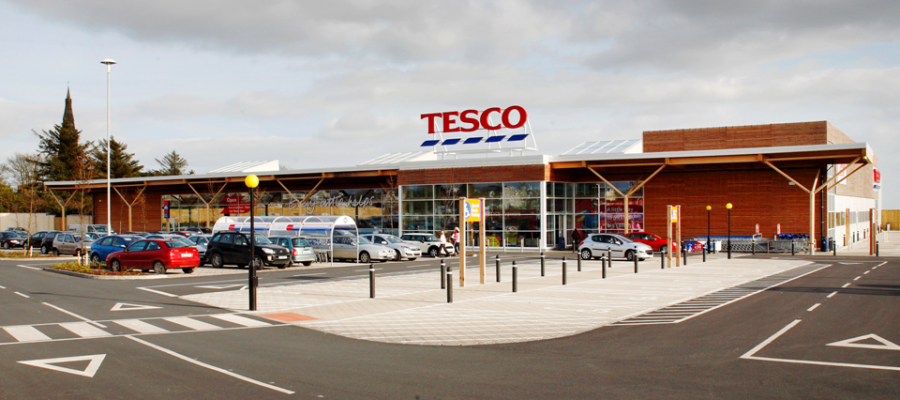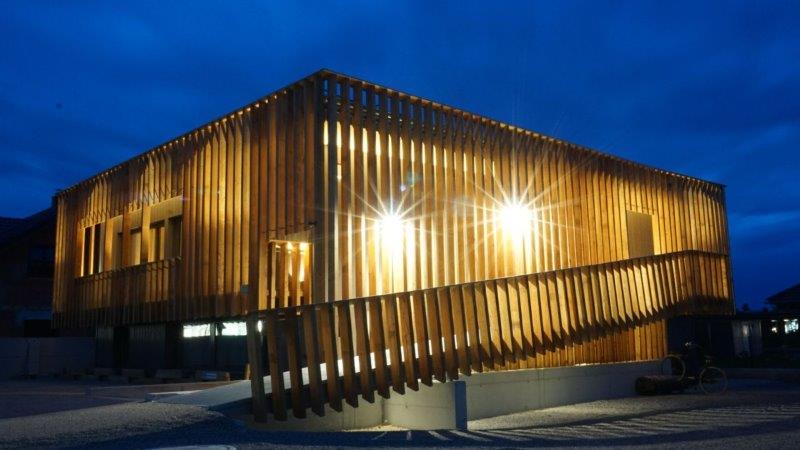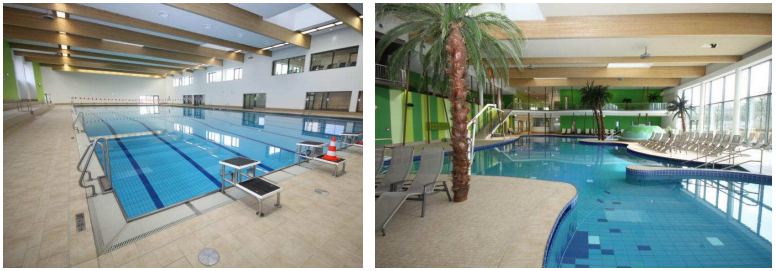10 Passive House Buildings that are not houses
This is a re-post from the iPHA blog.
A common misconception is that the Passive House Standard only applies to single-family homes. In fact, the standard can be achieved for all kinds of buildings including office, retail, recreational and educational buildings. Indeed, in order to reduce operative energy consumption across the building sector, it is integral that Passive House principles be applied to both residential and non-residential buildings. To highlight the variety of Passive House buildings, we thought we’d share a few of the lesser-known Passive House buildings you might not have considered:
1. Supermarkets
It may surprise you to learn that there is more than one Passive House supermarket, and this Tesco Eco-store in Ireland was the first certified Passive House supermarket in the world!
Photo: Joseph Doyle Architects, Dublin, Ireland
2. Fire Stations
While the fire stations’ garages might not meet the Passive House Standard (they’re outside the thermal envelope!), the administration areas can and do meet the standard in at least two fire stations in Germany — one in Heidelberg, and another in Wolfurt. Another fire station is currently being built to the Passive House standard in Vancouver.
Photo: Robert Fessler
3. Schools and University Buildings
Comfort is integral to learning, so why not create the best learning atmosphere possible with consistent temperatures, clean, fresh air and sound-proofing from distractions? That’s what over 100 educational institutions have done by building Passive House schools and universities such as this school in Austria.
Photo: Markus Kaiser
4. Child care centres
There are many Passive House Kindergartens and Child Care centres. This day care centre in Denmark, was one of the first Passive House buildings in the category. With schools and child care centres being the most popular application of the Passive House Standard outside the residential sector, there is a wealth of information related to Passive House educational buildings on Passipedia.
Photo: Uffe Johansen
5. Medical Clinics
No one wants to feel cold while on the mend! The constant, comfortable temperature in Passive House buildings, complemented by their ventilation system, which ensures a fresh, clean air supply, provides the perfect location to get well soon! There are plenty of examples of Passive House health care buildings around the world and this therapy centre is just one of them. And – some exciting news! – the world’s first Passive House hospital is nearly complete!
Photo: TherapieStützpunkt
6. Museums
Museums can be draughty buildings – but not Passive House museums, which are airtight, well-ventilated and comfortable. The world’s first was built in Ravensburg and houses the most significant collection of Peter and Gudrun Selink’s artwork in the world, as well as other modern art.
Photo: Herz & Lang GmbH
7. Factories
Cold, hard factory floors? No more! Well, at least they won’t be cold… Passive House factories show that size is only a number – one that can effectively meet the Passive House Standard even at floor areas of over 16,000 m²! The Star Innovation Center is the first Passive House project in South Asia, and one of only two certified factories in the world.
Photo: Ganidu Balasuriya
8. Places of Worship
Churches, temples, synagogues, mosques and a range of other places of worship can meet high energy efficiency targets! This temple in Tokyo is the first Buddhist architecture in the world to meet Passive House Low Energy Building requirements.
Photo: Satoshi Asakawa
9. Public Pools
Indoor swimming pools are a steaming hot topic right now in the Passive House realm. Many pools in European countries were constructed in the 1970s, so there is a great need for refurbishment and renewal. This indoor pool, Bambados, is an example of one such pool that has been retrofitted, and achieved a reduction in energy consumption of over 50%! 
Photo: Passive House Institute
10. Libraries
Books also benefit from proper ventilation, which makes libraries and Passive House are a perfect fit. This public library in Pittsburg is a shining example of this.
Photo: Thoughtful Balance Architecture
It’s exciting to see the Passive House Standard applied in so many different and creative ways. Can you think of any more Passive House building types that aren’t houses? Let us know in the comments below!




